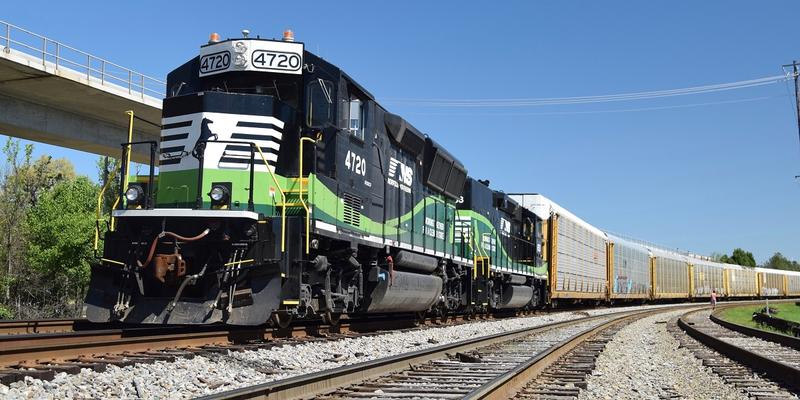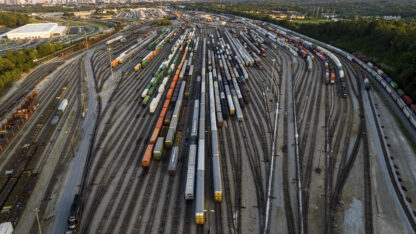A strike deadline is looming Friday between the nation’s two largest rail unions and the railroads that employ them, which could have a terrible impact on the country’s still recovering supply chain.
The unions representing engineers and conductors — the Sheet Metal, Air, Rail and Transportation Workers – Transportation Division union and the Brotherhood of Locomotive Engineers and Trainmen union — are demanding better terms from the coalition of the country’s largest freight railroads, including Union Pacific, CSX, Norfolk Southern and others.
Nik Osadchiy is an associate professor of information systems and operations management at Emory University’s Goizueta Business School. He joined WABE’s “All Things Considered” to talk about the potential consequences of a shutdown.
He said tens of thousands of workers could go on strike if the unions and railroads are unable to reach an agreement before Friday when a 30-day federally mandated “cooling off period” ends.
According to Osadchiy, the unions are asking for better terms with regard to hours, paid time off, and sick leave.









